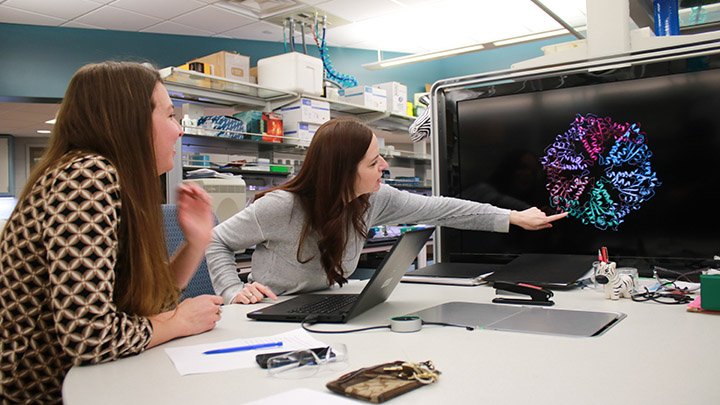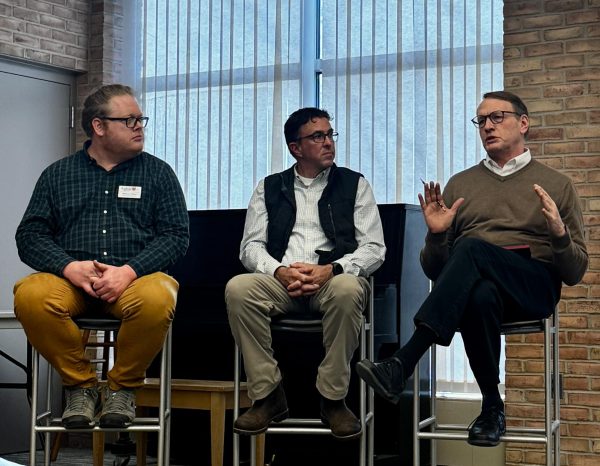Calvin researchers pursue knowledge about rare diseases
One in ten people have a rare disease, yet silence surrounds this topic both socially and scientifically. A group of researchers at Calvin is aiming to change this by pursuing knowledge of rare diseases and raising awareness for the community of affected patients and families. Chemistry and biochemistry professor Rachael Baker works alongside biology professor Amy Wilstermann to conduct research on rare diseases with students over the summer. Since the program started three years ago, a total of 12 students have taken part.
Baker recounted to Chimes what inspired the project. “We were thinking about Calvin’s mission of justice… we decided: ‘We want to find a project that we could do here that other people might not value at other places.’ And that took us straight to rare diseases.” Expanding on why there is a lack of research in this field, Baker explained that since each rare disease affects only a small number of people, there is not much profit in researching treatments for them. “It’s not going to be something very appealing for a big pharmaceutical company or a big lab to tackle,” Baker said.
The rare disease research taking place at Calvin is primarily focused on mitochondrial rare diseases. Currently, they are investigating a protein called BCS1L which is responsible for three different rare diseases ranging from mild to terminal. Because of how different the diseases are, Baker believes that the protein must have an additional, undiscovered function. “Our goal right now is to figure out what that second function is,” she said.
The team has conducted most of their research using yeast modeling, but have recently added a zebrafish lab.
Both Wilstermann and Baker were trained in biochemistry, but Wilstermann focuses on biology and Baker on chemistry. Baker talked about the benefits of having a research team with people from different scientific disciplines. “We look at a problem in different ways… that has enriched our research.”
In addition to laboratory work, Calvin’s rare disease research group strives to support rare disease patients. Baker explained that there is a close relationship between rare disease patients and research communities as patients often have to reach out to researchers to learn about their unusual condition.
The research group has hosted a symposium about rare diseases as a way to support patients who often feel isolated. A second symposium is being held this spring. Additionally, student researcher Elle Hazlett, a junior who is interested in scientific communications, is currently working on a curriculum to educate children in grades K-5 about rare diseases. “If fifteen million…children have a rare disease, then they ought to have the resources to understand that and for their peers to understand that too,” Hazlett said.
Hazlett told Chimes her story of being diagnosed with a rare disease and how it inspired her work. At age 15, a gymnastics injury that wouldn’t heal after 17 weeks led to a diagnosis of Chronic Regional Pain Syndrome (CRPS), a condition involving constant excruciating pain and hypersensitivity to noise and touch. After a long search for answers, Hazlett received successful treatment at a clinic in Texas and was able to continue most activities in her life, including college education.
A source of inspiration for rare disease research was personal connections to the subject material. During the course of their research, Wilstermann and Baker met a little girl named Harper Grace and her family. Harper suffered from mitochondrial disease, and while she passed away at the age of two and a half, she continues to inspire the rare disease research taking place at Calvin.
Baker and Wilstermann hope to continue to raise awareness surrounding mitochondrial rare diseases by teaching IDIS 125: Supporting Zebras in our Community this interim.







